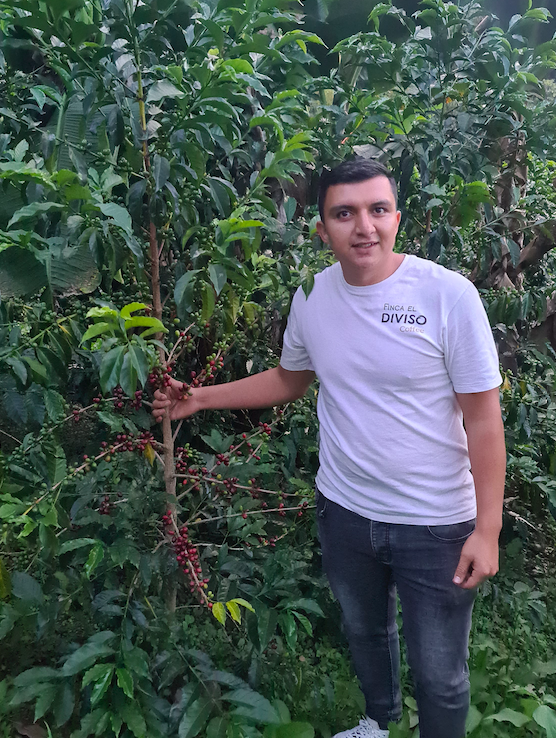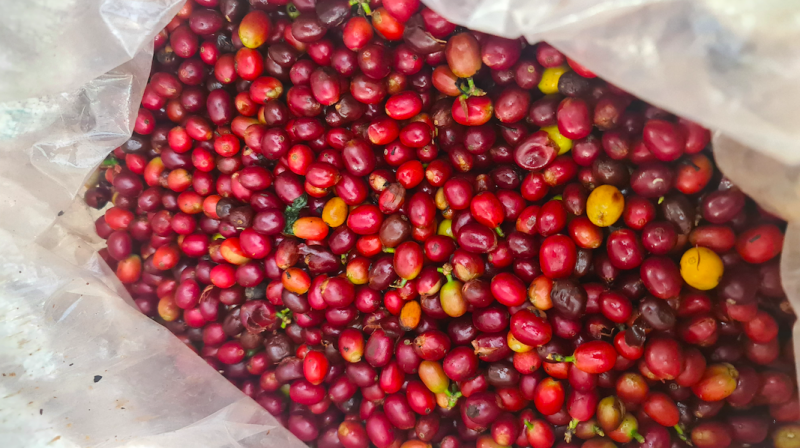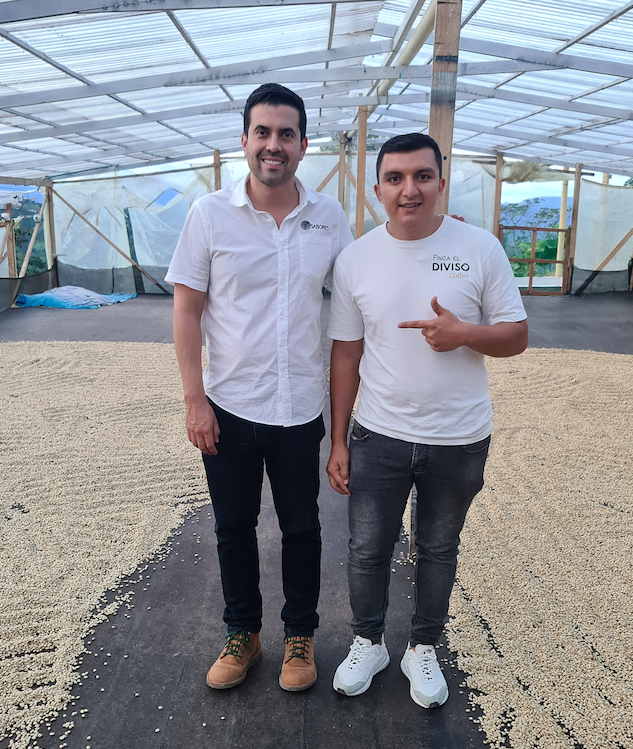This is a part of a series written by Jose and Nicole Fernandes of Sabores Flavours of Colombia Coffee, originally published in Issue 46 of The Coffee Magazine

Nestor Lasso
Nestor’s name, along with a group of young producers, has become synonymous with Championship coffees such as Sidra, Aji, and red bourbons used by baristas on the World stage. He has demonstrated that imagination, hard work, and deviation from the norm can create cup profiles that challenge traditional descriptors.
1. What are the primary challenges faced by specialty coffee producers in Colombia?
Colombian coffee growers are facing plenty of challenges, and one of them is the climate issue. We can’t control the weather, and when we are at the processing stage, getting to standardise our previously recorded steps is quite difficult due to heavy climate variances. There’s also the issue of research. We lack support from educational institutions so that the farmer gets support to choose good varieties and adequate processes for high-quality coffee production. Little by little we do our learning curve, and we also pay attention around our farms to learn good agricultural practices from fellow farmers, too. Another challenge I’ve encountered is good commercialisation of my coffees. Sometimes I face difficulties in getting some lots out to the international market that I know are exceptional in quality, due to trading barriers. That has happened because you need someone to work full time in offering specialty coffees to international clients, and I do not have that person appointed yet. I also had initially the challenge of being able to replicate the coffee processes obtaining similar profiles, but with constant hard work we’ve been able to reach that point.

2. What changes have you made in recent years to stay current in coffee production and maintain crop exports?
Some of the changes we’ve had to make at the farm include installing and adapting to new technologies, applying research results, some real science when we pick the cherries and when we ferment the beans. To properly control all our protocols, we’ve had to take the time and the patience to write and standardize all of them one by one. We are looking to bring our coffee growing and processing techniques up to the highest standards. We have also worked hard to get several channels of international trading and we try and avoid that our coffees clash overseas if sourced through different exporters. That is why we aim to strengthen our relations with several key importers so that we can try and control how roasters from different corners of the world source our coffees. International coffee trading is another school for us; we keep on learning about international markets, the prices, and exporting conditions, and how the coffee moves and is sold throughout the world. The way we learn is by listening closely to the clients and adapting quickly to their needs.
3. Where do you see Colombian specialty coffee production heading in the medium-term future?
We have witnessed major changes over the past five years. Colombian coffee growers are very curious people and we have reached a wonderful and healthy level of competitiveness, where the main winners are the coffee consumers around the world. Our country’s coffee growing practices will keep on evolving, and not through leaving traditional methods behind, as they are the backbone of our coffee economy and history. I am confident that within the following three years we will have more and more coffees of extremely high quality throughout the country. Thanks to the groundbreaking developing of processes such as culturing and co-fermentation from our curious and innovative new generation farmers, I foresee that in the next few years we will not only be discovering new processing techniques to elevate the varieties we know, but we will also be seeing how new varieties grown in Colombia get to be known everywhere. I foresee a very positive future, especially because we are a new generation of farmers working together to get to produce groundbreaking coffees.
4. If given the opportunity, what aspects of the global trade and marketing of Colombian specialty coffees would you alter?
It would be great to reach a point of full traceability in coffee trading, getting to consistently sell our coffees at a fair price. I’ve had to learn the hard way to avoid making large lots of high-end specialty coffees, to focus a bit more on the exclusivity of great micro-lots distributed throughout the world to ensure that our offer matches the demand and not be left with delicious lots waiting for a buyer at our warehouse.
